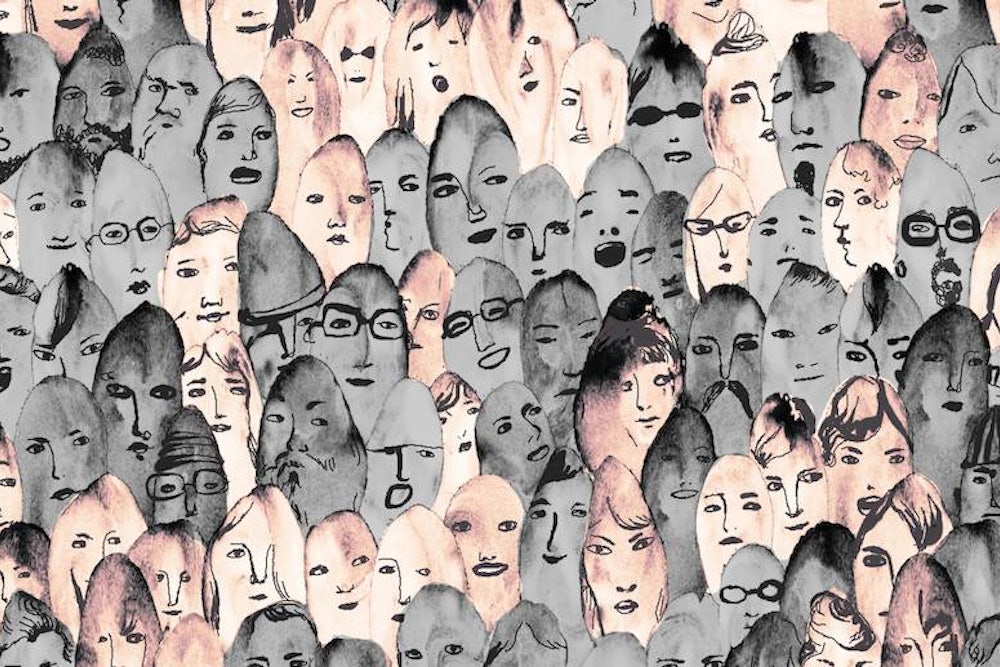The concept of "all-American"—which has, historically, been used to mean "white people"—is rapidly changing; by around 2050 or so, white people will no longer constitute a majority in this country. Some past research has suggested that the more aware white people are of this demographic shift, the more threatened they will feel by it, and a recent paper (PDF) in Social Psychological and Personality Science demonstrates this in a pretty nifty way.
For the second of two studies they conducted for the paper, Felix Danbold and Yuen J. Hou of UCLA recruited a group of online (white) study participants and showed them one of two graphs projecting the U.S. population between now and 2050: One showed the white and nonwhite populations rising at an equal rate, so that it appeared nonwhite people weren't "catching up" to white people; the other showed a situation closer to the reality, which is that in two or three decades there will be more nonwhite people than white people. (To help guard against the respondents being primed to think about race, they were told that they were being presented with a "random" chart or graph about the U.S.)
The respondents were then asked how much they agreed with a series of statements about diversity—stuff like "One of the goals of our country should be to teach people from different racial, ethnic, and cultural backgrounds how to live and work together." Sure enough, white people who were shown the more realistic graph were less likely to agree with these statements, as well as more likely to agree with statements along the lines of "Compared to today, 50 years from now the values and beliefs of the typical American will be different from the values and beliefs of people like me" (researchers call this a "prototypicality threat"—the notion that your version of what it means to be an American is being threatened).
This wasn't a huge or a fully representative sample, but the effect was a decent size (for the diversity questions, a half-point on a seven-point scale, on average) and fits into the pretty well-established idea that when white people sense their special status is threatened, it changes how they view politics and the world. Certainly worth keeping an eye on as American politics adapt to a changing demographic landscape.
This piece originally appeared on Science of Us, New York magazine's science blog.
